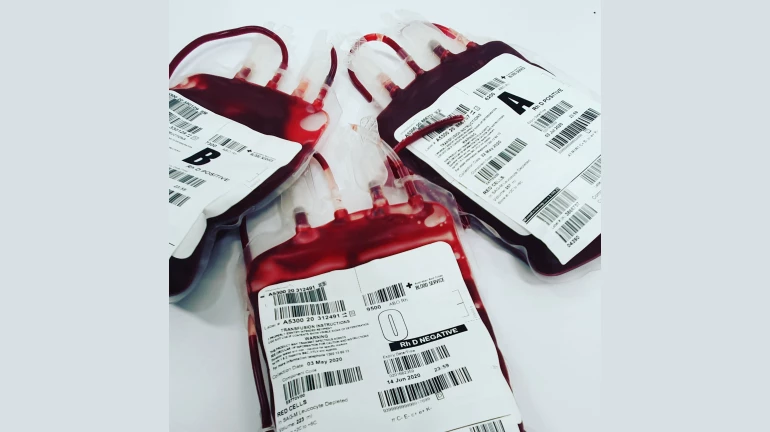
In a groundbreaking move, the State Blood Transfusion Council (SBTC) has issued a directive to ease the process of blood transfusion for patients, particularly those suffering from thalassemia and other blood disorders.
The new regulation requires all private blood banks to supply a fixed quantity of blood units every month to their associated thalassemia childcare centres across Maharashtra. This initiative aims to ensure that patients requiring frequent blood transfusions have consistent access to free blood.
According to reports, this decision was taken during the 45th and 46th meetings of the SBTC's Governing Board held in 2021. The board also initiated a pilot project to provide free blood through their blood centre in Mumbai in November 2022. This initiative is still being conducted in Mumbai.
The plan involves blood banks at Jaslok and Bombay hospital supplying 25 and 20 bags per month, respectively, to the thalassemia unit at St. George Hospital.
The National Blood Transfusion Council (NBTC) and the Maharashtra government have now set standards that require licenced blood clinics to provide free blood to individuals with blood disorders. The disorders include haemophilia, thalassemia, sickle cell disease, and others.
Under this programme, two to three blood facilities would be linked to nearby thalassemia day care centres. The blood banks are required to provide a minimum number of blood units monthly at no cost, following the guidelines issued by the NBTC.
The guidelines for blood banks include following the minimum number of units required for transfer, collaboration with the receiving centre's blood transfusion officer, and a biweekly transfer schedule.
The transferred blood units must be no older than 15 days and include the minimum types of blood. The receiving blood centre will have to collect units and send a monthly list of recipients to the issuing blood centre.
Currently, 47 blood banks are connected to 17 thalassemia clinics, most of which are located at public medical universities. Thalassemia is a blood disorder that causes an individual to have very low haemoglobin in the body. Patients require time-to-time blood transfusions to deal with the disease.





